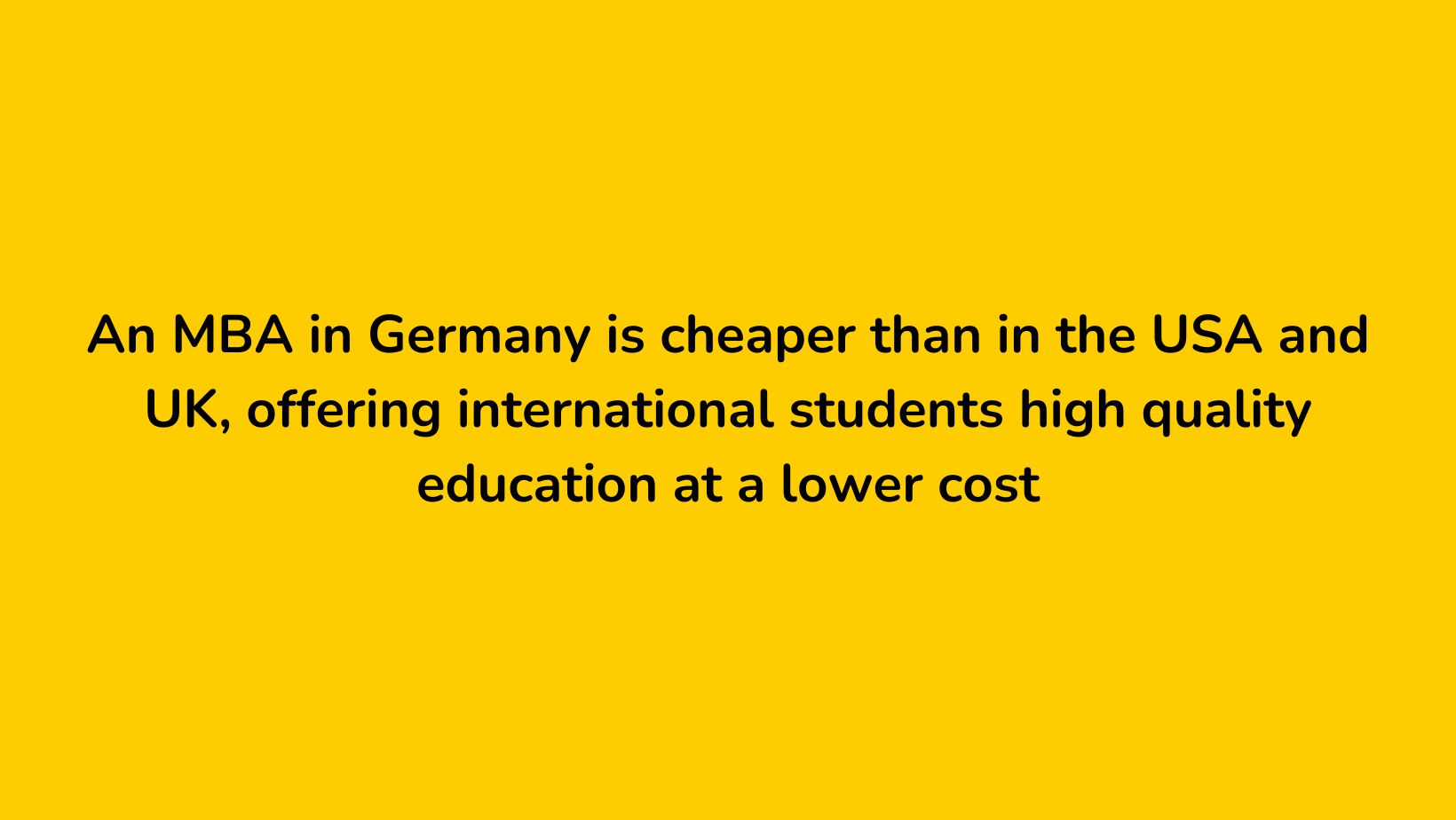Introduction
MBA from Germany Originating in the early 20th century United States, the MBA was designed to provide business professionals with the skills necessary for successful management and leadership roles.
This program typically encompasses a wide range of business-related topics, including accounting, finance, marketing, human resources and operations management.
It aims to equip students with a broad understanding of business operations and strategic thinking necessary for high-level managerial positions.
MBA from Germany
Germany, known for its robust education system and dynamic business landscape, offers promising prospects for MBA aspirants.
Pursuing an MBA from Germany is not only a gateway to acquiring technical, managerial and leadership skills but also a pathway to immerse them in a culture that champions innovation, strategic thinking and global business perspectives.
Course Structure
MBA Spans 1-2 years, whether full-time or part-time, offers a curriculum that covers vital areas such as accounting, statistics, human resources, business communication, ethics, law, strategic management, finance and marketing.
This holistic approach ensures that graduates from an MBA program in Germany are well-equipped for leadership and analytical roles in various industries.
Specializations and Global Relevance
German MBA programs offer specializations like general management, marketing, financial management, entrepreneurship and supply chain management.
These specializations are carefully designed to reflect the global market’s changing demands, ensuring that an MBA from Germany remains relevant and sought-after.
Graduates of an MBA from Germany find themselves in high need due to shortages of skilled professionals across many industries.
This demand decodes into a wide array of career opportunities and substantial salary prospects, with entry-level positions approximately starting from €50,000 to €60,000 and senior roles reaching upwards of €100,000.
The German University Landscape
Germany’s educational landscape is diverse, with both public and private universities offering MBA programs.
Each institution has its unique eligibility criteria, allowing a broad range of students to find a suitable MBA program in Germany.
The teaching methods in German MBA programs can vary from traditional lectures and seminars to more interactive and experiential learning approaches, such as case studies, group projects and internships. This blend of teaching styles ensures that students not only gain academic understanding but also develop practical skills and real-world insights.
This diversity is not just academic but cultural, offering students a rich experience that extends beyond the classroom.
Practical Experience and Industry Integration
An essential aspect of an MBA in Germany is the emphasis on real-world experience.
Many programs incorporate internships, case studies and industry projects, allowing students to apply theoretical understanding in practical settings.
This integration with the business world enhances employability and provides valuable networking opportunities.
Affordability and Financial Aid
A key factor that makes an MBA from Germany attractive is its affordability. Compared to the USA and UK, the average tuition fee for an MBA in Germany is significantly lower, making it an excellent destination for international students seeking quality education at a fair cost.
Additionally, the availability of part-time work options and scholarships in many universities further reduces the financial burden on students pursuing an MBA in Germany.
Cultural and International Exposure
Studying for an MBA in Germany also means experiencing a unique cultural environment.
Germany’s central location in Europe and its multicultural campuses offer students a chance to interact with peers from various backgrounds, fostering a global perspective essential in today’s business world.
Language and Skills Development
While most MBA programs in Germany are offered in English, living in Germany offers a chance to learn German, an added advantage in the global job market.
Furthermore, the MBA curriculum in Germany often includes courses on leadership, communication and intercultural skills, vital for the modern global manager.
Conclusion
An MBA from Germany is not just an educational pursuit; it’s a journey that molds students into future business leaders.
With its combination of rigorous academic training, practical experience, cultural exposure and affordability, an MBA stands out as a smart choice for anyone looking to advance their career in the global business arena.
This degree not only opens doors to lucrative career paths but also equips students with a mindset ready to venture into the challenges of the developing business world.












